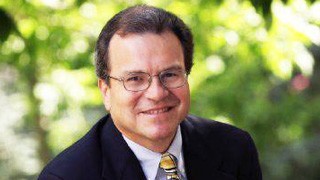You are here

Harel and Iris Kodesh have established a fund at the Stanford Woods Institute for the Environment to help transform research into new tools. PHOTO: Elizabeth Wolf Photography
Venture Funding for the Environment
Iris and Harel Kodesh (Parents '09, '12) provide seed funds for innovative research at the Stanford Woods Institute
Fall 2015
Harel Kodesh fears time is running out for planet earth, but he still has hope.
One reason: Stanford's ability to aim the right resources at the biggest problems.
"We can't go to the well-defined toolbox to find the answers to the environmental issues we're facing now," says Kodesh, a tech industry veteran who lives in Bellevue, Washington. "Our thinking has to go all out."
Kodesh considered starting a venture capital fund to support environmental innovation. But then he and his wife, Iris—whose sons Snir, '09, MS '11, and Arbel, '12, are Stanford alumni—learned about the work taking place at the Stanford Woods Institute for the Environment, the university's hub of environment and sustainability research.
In 2009, the couple made their first gift to the Stanford Woods Institute to support an initiative called Environmental Venture Projects, which awards seed grants to faculty research teams. Last year, the institute launched the Realizing Environmental Innovation Program (REIP), a companion initiative designed to put research into the hands of people who can effect change.
Research projects funded by REIP in 2015, for example, address how to provide safe water for the 500 million people in developing countries whose water is contaminated—a problem that concerns Kodesh—and how to protect coastlines from rising sea levels without resorting to building concrete barriers.
The strength of the seed funding programs at the Stanford Woods Institute inspired the couple to make a gift to establish The Kodesh Fund, which will provide five years of "next stage" funding to principal investigators.
Moving in the Right Direction
To be considered for funding from one of these programs, research projects must demonstrate both progress in identifying viable remedies and the potential for significant support from stakeholders outside Stanford.
"I want to productize solutions, put them on the market," says Kodesh, who has held top-level positions at Microsoft, EMC, and VMware, and now serves as chief technology officer at GE Software. "Stanford has the tools and the people to make that happen."
 One of those people is Jeffrey Koseff, cofounder and the Perry L. McCarty Director of the Stanford Woods Institute.
One of those people is Jeffrey Koseff, cofounder and the Perry L. McCarty Director of the Stanford Woods Institute.
"We so appreciate this funding because it means that our faculty will have the opportunity to 'scale up' their inventions and make a real difference in people's lives," says Koseff, who is also the William Alden Campbell and Martha Campbell Professor of Civil and Environmental Engineering.
"We rely on people like Harel, who believe that innovative solutions can change the world," Koseff says. "He likes Stanford because it's practical—and yet there's a willingness to break down barriers and explore unknown frontiers."
Stanford's interdisciplinary approach to problems is key for Kodesh, who says that an all-hands effort is the only way to address two of his major concerns: making renewable energy sustainable and discovering how to affordably harvest water and energy from wastewater.
"The world is moving in the right direction," Kodesh says. "We still have work to do, but more and more companies are driven by the type of research and innovation that is happening at the Stanford Woods Institute."